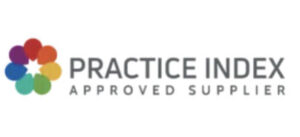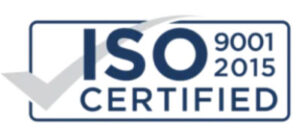Medication Reviews
As specialists in Medication Reviews and Management, we provide a variety of clinical solutions to help you manage medication and optimise your patient care. Our team of experts will work closely with you to provide rapid delivery of structured medication reviews to ensure your monitoring, review dates, and QOF alerts are properly aligned. Partner with us for a comprehensive solution to your medication needs.
Accreditations and Partners



Each practice is unique. Therefore we offer multiple types of medication review services, including:
Overview
- Polypharmacy reviews
- Prescribing quality audits
- Prescribing Safety audits
- Therapy reviews
- Medicines Optimisation
- Medicines Reconciliation
Medication service
Pendle West PCN - Structured Medication Reviews (SMR)

Background
Client: Pendle West Primary Care Network
Service Provider: National Clinical Services
Project Duration: 6 months
Objective: Complete 2,000 Structured Medication Reviews (SMRs)
Pendle West PCN aimed to improve patient safety and optimise medication use by conducting 2,000 SMRs within six months. They commissioned National Clinical Services (NCS) to carry out this task.

Approach
NCS deployed two full-time pharmacists (WTE) who worked both remotely and face-to-face across six GP practices. The pharmacists operated five days a week, ensuring a comprehensive and consistent review process.

Outcomes
Completion Time: The 2,000 SMRs were completed by the end of month five, a full month ahead of schedule.
Interventions: 95% of the reviews led to clinical interventions, resulting in improved patient outcomes through optimised medication management.
Medication Compliance: A 90% increase in medication compliance was observed, demonstrating better adherence to prescribed treatments by patients.
De-prescribing: 70% of the reviews involved de-prescribing, with a significant reduction in the use of opioids and analgesics, improving patient safety and reducing dependency risks.

Conclusion
National Clinical Services exceeded expectations by completing the SMR target ahead of time while achieving notable improvements in medication compliance and de-prescribing. This project demonstrated NCS’s ability to deliver high-quality healthcare services across multiple practices efficiently.
-
ICBs
-
PCNs
-
35 Pharmacists
Don’t just take our word for it…
“As Practice Manager, I want to express my gratitude to Yasin Patel for his invaluable support in establishing our remote Minor Illnesses Clinic. His professional service has been instrumental in addressing staffing challenges and providing additional coverage when needed. The clinically proven approach has significantly alleviated pressures on our team. Thank you, Yasin!”
Kerry - Practice Manager
Frequently asked questions
How much ARRS funding can a PCN benefit from?
A PCN is allocated a sum for an entire year based on its weighted population share of the total ARRS funding.
Although PCNs are able to claim up to this maximum sum each year, an underspend has commonly been reported.
From 1 October 2024, PCNs will be able to claim up to £65,838 (annual equivalent) per ARRS clinical pharmacist working at band 7-8a.
In outer London, this rises to £73,189, and £76,313 in inner London.
How much is the ARRS funding?
Funding for the new ARRS GP roles has been calculated at £1.303 multiplied by the PCN’s weighted population as of the start of 2024.
According to NHS England, the overall value of the ARRS in 2023/24 is in excess of £1billion.
The role of ARRS in primary care
According to NHS England, The ARRS scheme was introduced as a key part of the government’s manifesto commitment to improve access to general practice.
Through the scheme, primary care networks (PCNs) can claim reimbursement for the salaries (and some on costs) of 18 new roles within the multidisciplinary team selected to meet the needs of the local population.
By expanding general practice capacity, the scheme improves patient access, supports the delivery of new services, and widens the range of primary care services available.
How many ARRS roles are available?
There are around 18 roles available, including:
- Clinical Pharmacist
- Pharmacy Technician
- Health and Well-being Coach
- Dietician
- Podiatrist
- Paramedic
- Adult Mental Health Practitioner
- Children and Young People’s Mental Health Practitioner
- Nursing Associate
- Trainee Nursing Associate
- Occupational Therapist
- First-contact Physiotherapist
- Care Co-ordinator
- Physician Associate
- Social Prescribing Link Worker
- General Practice Assistant
- Digital and Transformation Lead
- Advanced Practitioner
What does the ARRS stand for in the NCS?
ARRS stands for The Additional Roles Reimbursement Scheme.
In August 2024, the government announced that £82 million of additional funding from the Department of Health and Social care budget would be used to enable changes to the ARRS scheme, which means that in 2024/25 it can be used to recruit newly qualified GPs into the NHS and practices will be reimbursed for their salary costs. However, this changes the nature of the scheme as it had been focused on ‘additional roles’ that broaden the skill mix and range of services available to patients in general practice rather than funding core GP roles.
Who are National Clinical Services and how can we help assist PCN’s with ARRS?
How does the application process for ARRS funding work?
Who is eligible for ARRS funding?
What is a PCN?
PCN stands for Primary Care Network.
A Primary Care Network (PCN) is a group of GP practices that collaborate closely with other health and social care staff and organisations to deliver integrated services to their local community.
This model enhances the ability to provide comprehensive, coordinated care tailored to the specific needs of the population they serve.
Across England, there are around 1,250 PCNs covering populations of, on average, 50,000 people – although this varies significantly, with more than a third of PCNs covering more than 50,000 people. In some cases, a single practice that has met the size requirements of a network can also function as a network.
Get in Touch
Choose a time that works best for you. Once you are done setting up a time, please check your email for your confirmation.
